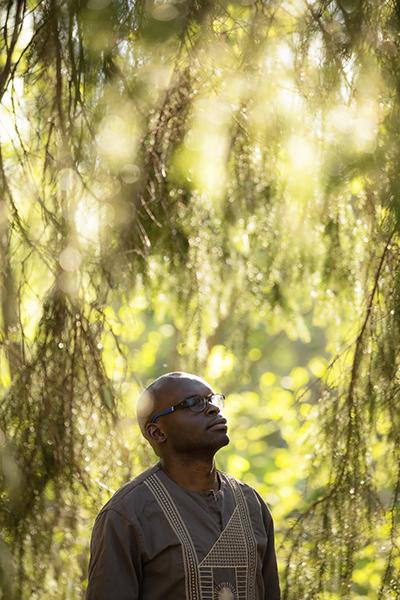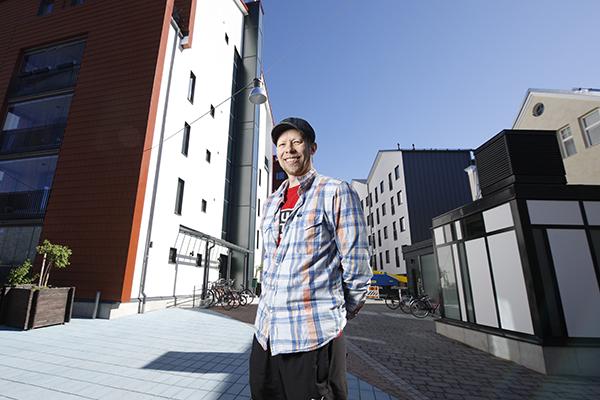
Text: Laura Iisalo
Michael Oduor's photo: Harri Tarvainen
Timo Perälä's photo: Reijo Koirikivi, Studio P.S.V.
How to create an environment that encourages or even forces its inhabitants to be more active? The subject will be thoroughly examined in a project titled Urban Lifestyle Engineering, which combines expertise of postdoctoral researcher Michael Oduor, who received his PhD in 2018 at the Oulu University, with practical knowledge gathered throughout the years by Oulu-based design agency Navico.
The first phase of the research project is funded by the PoDoCo grant worth 28 000 euros. During this period the aim is to look into best practices across the globe and analyse their impact on both personal and societal level.
The focus will be especially on technology, and how it is utilized as part of urban design – this is a topic closely related to Oduor's doctoral studies, which looked into persuasive systems design and its impact on human behavior.
– Technology could be used to inspire people towards a more active lifestyle, as it is a beneficial tool for tracking and summarizing habitual changes over time. The goal is to discover efficient ways to create healthier and more sustainable settings that increase social interaction, and make people appreciate their environment more by using technology. These so-called smart cities have been trending globally for a few years now, Oduor tells.
From research to concrete results
One of Navico's founders, Timo Perälä, has worked and volunteered in sports long enough to notice that in the past few decades people's physical performance has declined. He believes that changes in lifestyle are partly caused by the way cities are designed and built – for cars.
– People go to the gym more these days but they move less on a daily basis. They might workout vigorously for an hour but they don't get enough low intensity movement, which is a bad combination for overall health. It is a global phenomenon, which is reflected in the society and economy. There is no point talking about increasing productivity if people are not feeling well, he says.
Health concerns occur at a younger and younger age. In his work Perälä has seen 16-year-old children that have back fractures or other problems in their support and musculoskeletal system, which can severely impact their future.
– Parents want to buy wellbeing and drive their children to sports practices, which reduces their daily movement. This makes the children susceptible to injuries and physical rehabilitation early on – how will they cope in working life if this is the trend, Perälä wonders.
The intention is to take the collected data from the Urban Lifestyle Engineering research project and put it to use as soon as possible in order to develop better design and operational practices, which can be applied internationally.
– The research side relies strongly on Michael's skills and with his expertise we can measure the impact and deepen our understanding. We want to use the knowhow to improve people's daily lives, because that's where it really matters, Perälä concludes.
What is PoDoCo?
Grants awarded by PoDoCo foundation pool are intended for academic research investigating new innovative ideas to boost the strategic renewal of Finnish industry.
PoDoCo is a matchmaking program supporting long term competitiveness and strategic renewal of companies and employment of young doctors in the private sector. PoDoCo matches newly graduated doctors with companies, and financially supports the collaboration projects between doctors and companies. For more information go to www.podoco.fi




